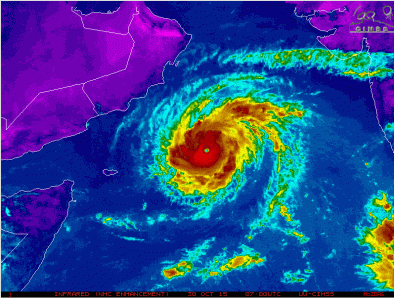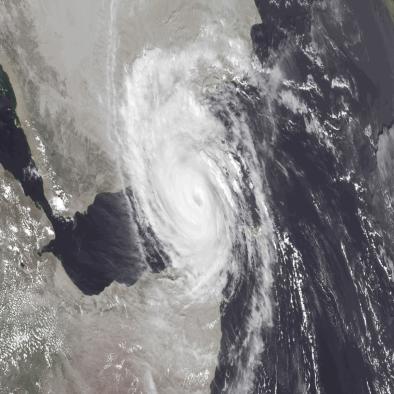Science Source
Tropical cyclones and climate change*
- States that it remains uncertain whether past changes in tropical cyclone activity have exceeded the variability expected from natural causes due to substantial limitations in historical records, and large amplitude fluctuations in the frequency and intensity of tropical cyclones
- States that, nonetheless, future projections based on theory and high-resolution dynamical models consistently indicate that greenhouse warming will cause the globally averaged intensity of tropical cyclones to shift towards stronger storms, with intensity increases of 2–11% by 2100
- States that existing modelling studies also consistently project decreases in the globally averaged frequency of tropical cyclones, by 6–34%
- Holds that higher resolution modelling studies typically project substantial increases in the frequency of the most intense cyclones, and increases of the order of 20% in the precipitation rate within 100 km of the storm centre
Related Content
Headline

Feb 1, 2016 | WxShift
Cyclone Chapala Threatens Yemen With Flooding Rains
Science Source
| American Meteorological Society
A Climatology of Arabian Sea Cyclonic Storms
Amato T. Evan & Suzana J. Camargo
Headline

Feb 1, 2016 | VICE News
Nearly 40,000 Displaced After Cyclone Chapala Slams Into Yemen
Science Source
| Nature Climate Change
Trade-off between intensity and frequency of global tropical cyclones
Nam-Young Kang & James B. Elsner


